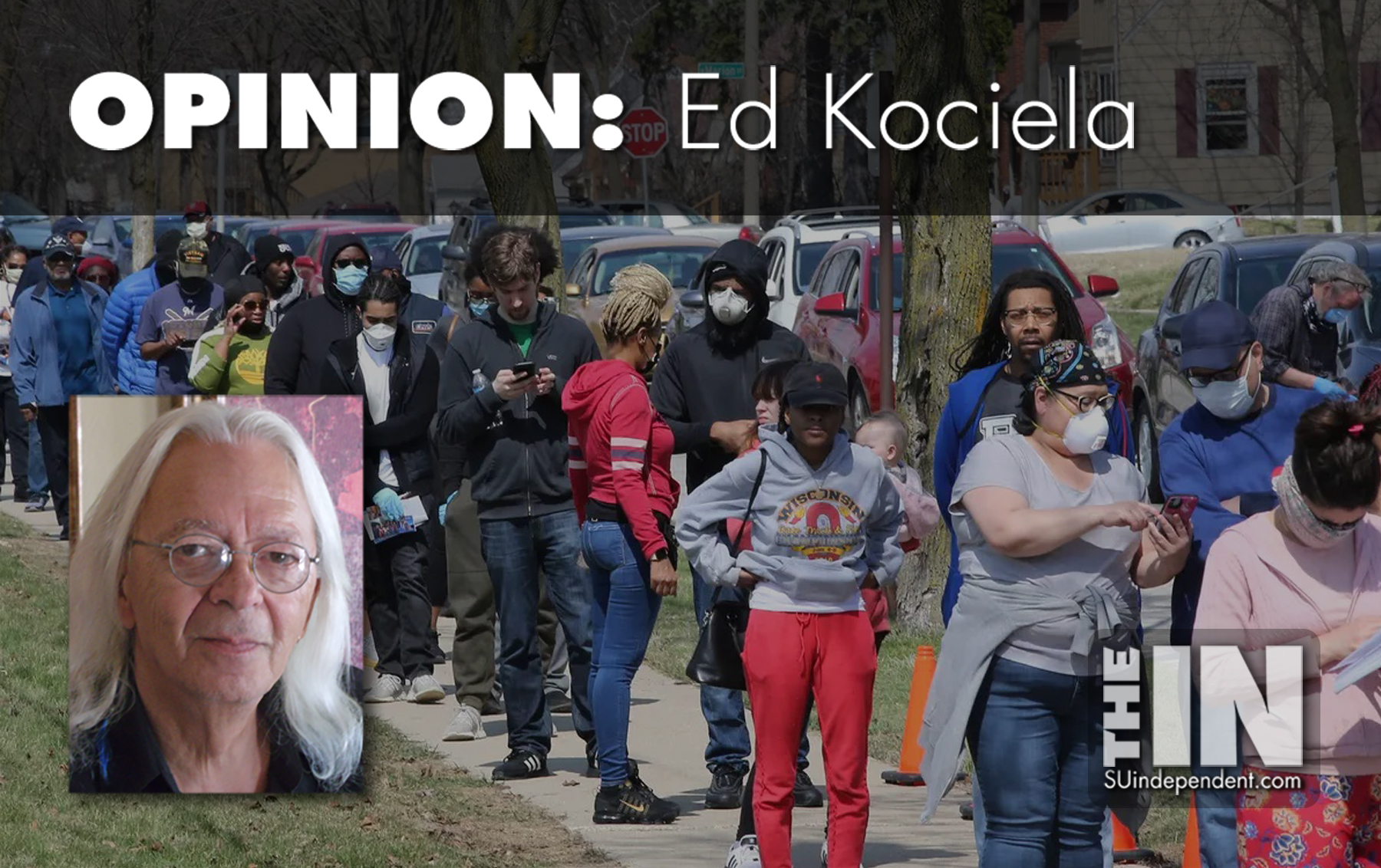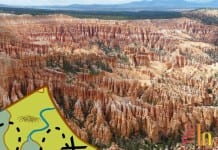
Early Voting? Just Say ‘Yes”
– By Ed Kociela –
I can still remember far enough back to recall what it was like all those years ago when Americans went to the polls.
My elementary school was the local polling place, and on the day of the election, the cafeteria was lined with these odd-looking mini-closets; tall, rectangular boxes with a heavy curtain over the front where you could enter and exit.
I would stare at the machines, hoping to glimpse what was inside. It had to be magic, right? Something special to fit the occasion of electing a new set of leaders.
It was sort of.
Behind the curtain were these toggle switches that lined up with the candidates. Push the switch, and your vote was cast for the candidate whose name was next to it.
Looking back, it really wasn’t so magical, but it was certainly special because those chunky voting booths were the representation of our continued practice of exercising one of our most important rights.
We would wait for Dad to get home from work, hustle over to the school and stand in line with friends and neighbors. It seemed to go fairly quickly, and there really was no grumbling or complaining. You went in, did your business, then went home to watch the results, which often meant a long night.
Even as a very young child, I talked my folks into allowing me to stay up and watch the returns, beginning with the election of John F. Kennedy. The final graveyard count in Chicago didn’t come in until well past my bedtime, but there I was, sitting on the floor squarely in front of the tiny black and white television screen with Walter Cronkite, whose choppy, hiccupping delivery gave us the results. Telephones were ringing all over the newsroom in the background, and news reporters scribbled numbers as fast as possible to give us the latest updates.
I was enthralled. Plus, I got to stay home from school the next day.
Growing up in a newsroom, I spent many election nights in the office as the votes were tallied. Back then, we had reporters stationed in all of the nearby county administration offices reporting in with the latest tally as it was scribbled on a chalkboard. We kept track in the office as well and, between beer runs, would wager as to who would win and by what margin. Yes, it was a different world.
There was a sense of history in the air on those nights, a realization of importance regarding what was taking place as the votes were counted. And there always were some surprises. I remember, in fact, standing in line to vote in Southern California and hearing, before I could cast my ballot, that Jimmy Carter had conceded the race to Ronald Reagan. The West Coast polls were still going to be open another couple of hours, and Carter’s concession scuttled a lot of votes. It was a very odd feeling, knowing that the guy I was about to vote for had dropped out of the race.
Election day has changed.
Now, within minutes of a state closing its polls, the networks tell us who will win and by what margin.
We will know how many women voted, what color they were, what income they have. We will know how men voted and why. We even get the scoop on what is happening with the Electoral College, the antiquated system of governance that has decided more than its share of presidential elections.
And, it is easier.
You can go vote in person well before election day in 46 states.
You can get a mail-in ballot if it is more convenient.
Or, you could go down on election day and do it old school.
I used to prefer the early, in-person voting. The newspaper office was virtually across the street from the county administration offices and I could peek out the door and see how full the lot was. An empty lot and I made a dash across the street, cast my ballot and returned to work within about seven minutes unless I stopped at Iceberg for a burger, shake, and some of their incredible onion rings.
Most countries hold their elections over the weekend – usually on Sunday – to avoid work conflicts. Some declare election day a national holiday and everybody takes the day off. The United States has held pretty firm to holding the actual election on the Tuesday after the first Monday in November. Since Day One we have taken it very seriously, for the most part, even to the extent of closing down all the watering holes on election day. Honestly, there have some candidates I’ve voted for where having a belt or two would have made voting a little more palatable. (Remember Michael Dukakis vs. George H.W. Bush? Even now I have horrid flashbacks about that one!)
Historically, since 1932 when they started keeping track, our voter turnout in the United States has consistently been in the mid to upper 50 percentile of eligible voters, sometimes spilling over to the lower 60s when issues like the escalating war to reelect Donald Trump was driving the ballot.
This year should be interesting.
We are coming off of COVID-19 restrictions, and, in a way, Trump is still an issue for voters to contend with, as well as an economy that was crippled by mismanagement and a pandemic for four loathsome years of uncertainty, pain, and suffering. It could be another anomaly where numbers are skewered all over the place as we scramble to establish a new “normal.” Even the most scholarly pundits are confused about what will occur as the nation crosses swords in an ever-failing attempt to elect good, solid leadership. I mean, even within Nicine Republicanism, they are eating each other up, as we see in the race between GOP incumbent Sen. Mike Lee and independent challenger Evan McMullin, a Republican traditionalist. Of course, Lee makes Barry Goldwater look like a suitable running mate for George McGovern, so there’s that. But, we are also in a time when Sen. Mitt Romney has more common ground with moderate Democrats than most members of the Republican party. I’m not sure if that is a good thing or a bad thing. Simply put, it is what it is – a phrase I hate, but one that aptly fits this equation.
Look, I admit that there is little incentive for a progressive to go to the polls. It seems futile, to be honest. Since 1995 I found only one politician I could endure on a decency level, only one I trusted, only one who I believed would truly look out or the best interests of everybody and that was Jon Huntsman. The remainder? Democrats in name only and Republicans who scare the daylights out of me with their Q-Anon politics and Duck Dynasty mentality.
Hell, I saw what they did to Bob Bennett and Orrin Hatch, two of the most sincere old-school Republicans ever to bear the mantle.
I can only imagine how they feel about me.
But, as far as early voting?
Just say yes.
Viewpoints and perspectives expressed throughout The Independent are those of the individual contributors. They do not necessarily reflect those held by the staff of The Independent or our advertising sponsors. Your comments, rebuttals, and contributions are welcome in accordance with our Terms of Service. Please be respectful and abide by our Community Rules. If you have privacy concerns you can view our Privacy Policy here. Thank you!
Click here to submit an article, guest opinion piece, or a Letter to the Editor




